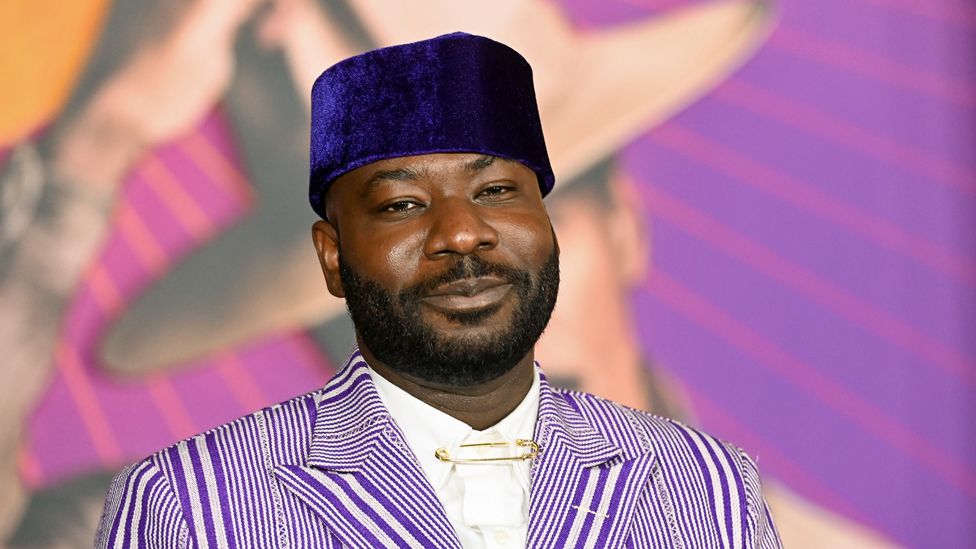-

-
-
Loading

Loading

Blitz Bazawule, a Ghanaian director, is known for his versatility and numerous accomplishments. Aside from directing a film adaptation of Alice Walker's The Color Purple, he has co-directed a Beyoncé film, published a novel, and set a Netflix record. His latest project, The Color Purple, is a musical adaptation of the Pulitzer Prize-winning book that explores the struggles of a young black woman against racism and patriarchy in America. This film follows the success of the 1985 movie and the Broadway musical in 2005. Despite the pressure of taking on a classic, Bazawule is well-equipped to handle the challenge. Born in Accra, Ghana, Bazawule had a passion for drawing and music from a young age. Hip-hop had a profound impact on him, particularly Public Enemy's album It Takes a Nation of Millions To Hold Us Back. Inspired by this, Bazawule released mixtapes and pursued a music career. He has released four studio albums under the name Blitz the Ambassador and incorporates African music stars like Seun Kuti, Angelique Kidjo, and Nneka into his songs. In addition to his music career, Bazawule ventured into filmmaking. His critically acclaimed debut feature film, The Burial of Kojo, was self-funded and tells a story of a girl searching for her father in Ghana. Despite not having formal training or traditional funding, his film caught the attention of Ava DuVernay, leading to its distribution on Netflix. The Burial of Kojo received widespread acclaim and was praised for its emotional depth and beauty. Bazawule's success with The Burial of Kojo led to his involvement in Beyoncé's Black Is King. This project earned him a Grammy nomination. He further expanded his creative endeavors by writing a novel called The Scent of Burnt Flowers, which is reportedly being adapted into a TV series that he will write, direct, and produce. For Bazawule, the key to portraying Celie, the central character in The Color Purple, lies in showcasing her imaginative strength as a means of overcoming abuse and trauma. Despite living outside of Ghana for many years, he remains connected to his birthplace and encourages other African creatives to showcase their countries on the big screen. He believes in the visual splendor of Africa and urges filmmakers to recognize and harness it.